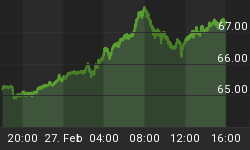Special Guest: Adam Taggart - Co founder, Peak Prosperity
FRA Co-Founder Gordon T. Long interviews Adam Taggart, regarding his new book: "Prosper! How to Prepare for the Future and Create a World Worth Inheriting" co-authored with Chris Martenson PhD. Adam is an author, and the Co founder of Peak Prosperity, a website created to help individuals make appropriate and informed financial decisions.
"We fell from a certain height in 2008, we're at much higher heights in many other areas right now, and none of the fundamental causes of the 2008 crisis have been resolved or satisfactorily addressed"
Adam says that if in 2008 we only fell from about halfway up the ladder, we can expect a much greater upcoming fall which will be faster and hurt more. He is a strong believer in taking prudent preventative action, before a major correction. "Everyone wants to buy insurance after their house burns down, but it's too late then." This book is intended to aid people in taking informed steps to minimize or possibly avoid upcoming financial pain.
Key Message of this Book
Developing Resilience
"Resilience is the ability to be as least changed as possible by a change in your environment"
"Developing investments today that are going to protect you against the greatest and most likely risks"
Drawing from the permaculture school of thought, there are 8 forms of capital to address when developing true wealth: Financial capital, living capital, material capital, social capital, emotional capital, knowledge capital, cultural capital, and time capital.
Adam mentions it is important to realize capital is able to be exchanged from one form to another. Financial capital is often the first thought of form of capital, but Adam says it is important to consider the other seven forms of capital. Adam recommends people look upon these 8 forms of capital and examine where they have a deficit and where they have abundance, and encourages them to prioritize their time in reducing the deficits and not just focus on one or two.This framework of 8 forms of capital will work for anyone, regardless of their socio economic condition

Adam mentions that everything in this book is common sense. Gord references a Will Rogers quote, saying, the most uncommon thing is common sense.
















